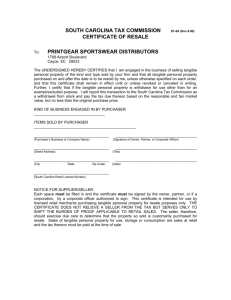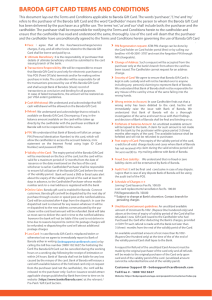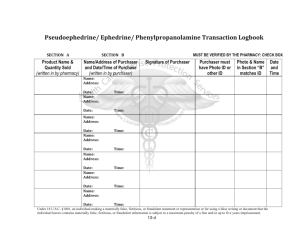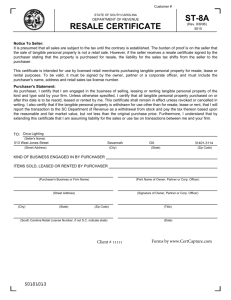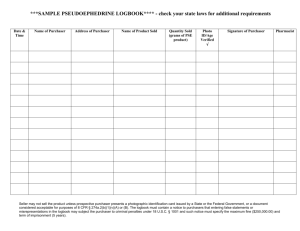Breaking Developments in Tax Law 03/04/09
advertisement
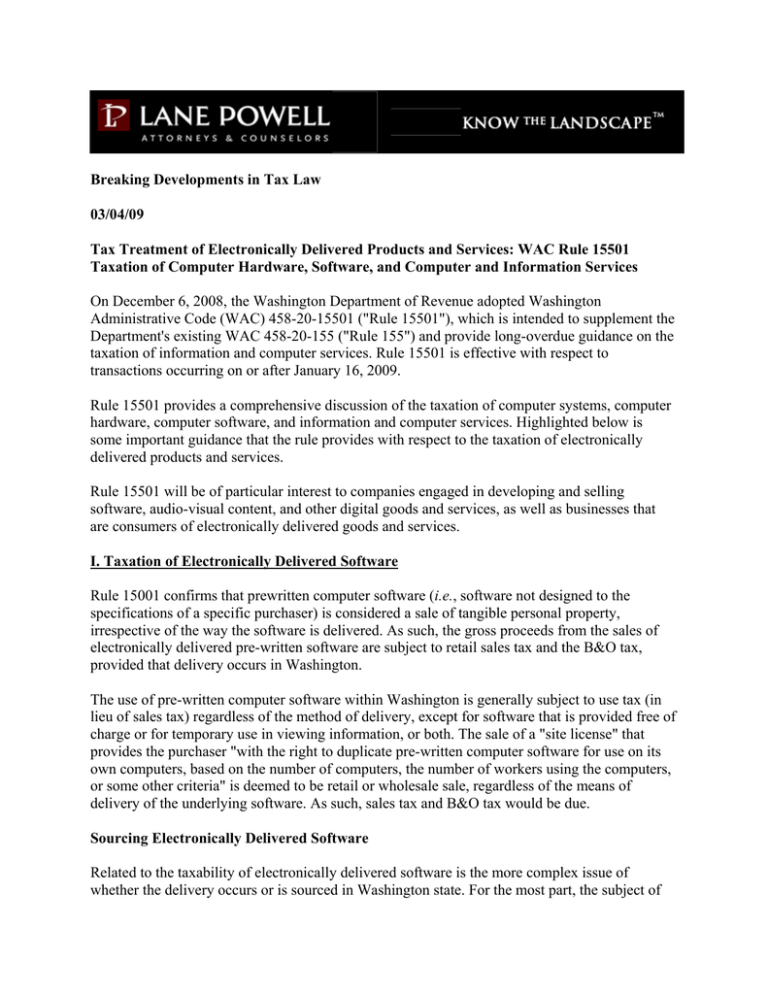
Breaking Developments in Tax Law 03/04/09 Tax Treatment of Electronically Delivered Products and Services: WAC Rule 15501 Taxation of Computer Hardware, Software, and Computer and Information Services On December 6, 2008, the Washington Department of Revenue adopted Washington Administrative Code (WAC) 458-20-15501 ("Rule 15501"), which is intended to supplement the Department's existing WAC 458-20-155 ("Rule 155") and provide long-overdue guidance on the taxation of information and computer services. Rule 15501 is effective with respect to transactions occurring on or after January 16, 2009. Rule 15501 provides a comprehensive discussion of the taxation of computer systems, computer hardware, computer software, and information and computer services. Highlighted below is some important guidance that the rule provides with respect to the taxation of electronically delivered products and services. Rule 15501 will be of particular interest to companies engaged in developing and selling software, audio-visual content, and other digital goods and services, as well as businesses that are consumers of electronically delivered goods and services. I. Taxation of Electronically Delivered Software Rule 15001 confirms that prewritten computer software (i.e., software not designed to the specifications of a specific purchaser) is considered a sale of tangible personal property, irrespective of the way the software is delivered. As such, the gross proceeds from the sales of electronically delivered pre-written software are subject to retail sales tax and the B&O tax, provided that delivery occurs in Washington. The use of pre-written computer software within Washington is generally subject to use tax (in lieu of sales tax) regardless of the method of delivery, except for software that is provided free of charge or for temporary use in viewing information, or both. The sale of a "site license" that provides the purchaser "with the right to duplicate pre-written computer software for use on its own computers, based on the number of computers, the number of workers using the computers, or some other criteria" is deemed to be retail or wholesale sale, regardless of the means of delivery of the underlying software. As such, sales tax and B&O tax would be due. Sourcing Electronically Delivered Software Related to the taxability of electronically delivered software is the more complex issue of whether the delivery occurs or is sourced in Washington state. For the most part, the subject of sourcing is not addressed by Rule 15501, which instead cross-references the Streamlined Sales and Use Tax Agreement ("SSUTA") sourcing provisions set out in RCW 82.32.730 and WAC 458-20-145. Under these provisions, if the purchaser does not take possession of the tangible personal property at the seller's business location, the sale is sourced to the location at which the purchaser receives the property (including the location shown on delivery instructions). If the delivery location is not known, the sale is sourced to either the buyer's address as shown on the seller's records maintained in the ordinary course of business or the buyer's address as obtained during the consummation of the sale (if the use of these addresses does not constitute bad faith), or in lieu of any of the foregoing, the location from which the property was shipped. In the case of electronically delivered software and similar items, this is deemed to be the server or other location from which the software or items were first available for transmission by the seller, not any location that merely provided the digital transfer. Unfortunately, neither the rule nor these provisions fully address the complexity associated with sourcing sales of electronically delivered software and similar products. Activation Keys and Product Codes Frequently, sellers of software will provide the purchaser with an alpha-numeric key or code to activate and use pre-written computer software, which often occurs after the software has already been downloaded or otherwise acquired by the purchaser (e.g., product codes used to activate trial use software). Rule 15501 provides that in such instances, the sale of the software is deemed to occur upon delivery of both the key and the software to the purchaser, and there is no separate sale of the key from the software, regardless of how the parties may characterize the transaction. The rule further provides that location of the sale is deemed to be either the location where software is received by the purchaser, or if that location is not available to the seller because the software was delivered by a third party, then the location where the key is delivered to the purchaser is controlling. Remote Access to Pre-written Computer Software Through innovations such as "cloud computing" and "software-as-a-service" ("SAAS"), software is increasingly being made available for consumer's use via remote access and without the delivery of the underlying software applications. Rule 15501 draws a distinction between electronic delivery and the provision of "remote access to pre-written software" by application service providers ("ASP") and similar businesses. Under the rule, the provision of remote access to software applications located on the host's servers are deemed to be the provision of a service rather than the sale of pre-written computer software, and as such, subject to the service and other B&O tax to the extent that the service is performed in the state of Washington. The characterization of remote access as a service includes instances where the ASP "provides downloadable codes in order for customers to access its applications on its server that are only incidental to the services provided to customers." 2 II. Taxation of Information and Computer Services Rule 15501 reaffirms the distinction drawn by Rule 155 between taxable sales of tangible personal property and the provision of non-taxable services. Thus, the application of sales or use tax to information and computer services depends on whether the purchaser's "true object" of the transaction is the acquisition of a taxable product or non-taxable service. The True Object Test If the true object of the transaction is to obtain professional or personal services such as those performed by an attorney, accountant or architect, it is not subject to sales or use tax because "these services are performed to meet a consumer's specific needs and any property transferred in the transaction is considered the medium in or on which those services are rendered and is merely the tangible evidence of a professional service rendered. By contrast, if the true object "is a product made available to any consumer and not created to meet the particular needs of a specific consumer, regardless of the method of delivery, then the transaction is taxable under the retailing B&O tax classification and taxable as a retail sale." For purposes of the rule, "product" includes "tangible personal property, such as pre-written software." According to the rule, "[t]his no different from a usual inventory of tangible personal property held for sale or lease, and the sale or lease of such products is a sale at retail subject to retail sales tax or use tax." Standardized or "Canned" Information In 2007, the Washington legislature enacted a sales and use tax exemption for sales of electronically delivered standard financial information, defined as "any collection of financial data or facts, not compiled for a specific consumer, including financial market data, bond ratings, credit ratings, and deposit, loan, or mortgage reports," if the sale is to an investment management company or a financial institution. The enactment of this exemption suggests by implication that the providing of "standard financial information" or any other "standard" information for that matter is otherwise a retail sale and subject to the sales and use tax. While the Department of Revenue has indicated that this is consistent with its historical interpretation of the law, there is no prior published authority to that effect. Rule 15501 confirms the Department's position in that regard going forward. III. Taxation of Internet Services Rule 15501 acknowledges that the provision of Internet service is subject to the B&O tax under the service and other activities classification, and by implication, exempt from the sales and use tax. 3 Definition of Internet Service The rule expands on the statutory definition of "internet service" by providing that it is "a service furnished by an internet service provider ("ISP") that allows users access to the internet." Under the rule, "[t]he ISP must provide the service through use of computer processing applications that either provide the user with additional or restructured information or permit the user to interact with stored information through the internet or a proprietary subscriber network." Internet service includes an ISP's provision of the following: Internet electronic mail, access to the Internet for information retrieval and hosting of information for retrieval over the Internet. Internet service does not include telecommunications services or Voice over Internet Protocol ("VoIP") services (i.e., a service enabling subscribers to use the internet as the transmission medium telecommunications). Treatment of Other Internet-Related Services The rule also clarifies the treatment of other Internet-related services. For example, the rule confirms that "web site development services" (i.e., the "design and development of a web site provided by a web site developer to a customer") and "web site hosting services" (i.e., "providing server space to host a customer's web site") are subject to the B&O tax under the service and other activities classification and exempt from sales tax. "Data warehousing services" that involve "offering server space for a customer to store its data and to access, retrieve, or use the data" are likewise exempt from sales and use tax. IV. Pending Legislation HB 2075 Taxpayers should also be aware of House Bill 2075, which was introduced in the state House of Representatives on February 9, 2009. HB 2075 would make significant changes to Washington's excise tax code by amending the statutory definition of a taxable retail sale by adding a new, broadly defined category of electronically delivered products and services, and provide for the general imposition of sales and use tax and B&O taxes on such products and services. As of March 2, a substitute version of the bill (SHB 2075) passed by a majority vote of the House Finance Committee. Lane Powell's Tax Practice Group is tracking this legislation closely and will be providing additional information regarding SHB 2075. For more information, please contact the Tax Law Practice Group at Lane Powell: 206.223.7000 Seattle 503.778.2100 Portland taxlaw@lanepowell.com www.lanepowell.com We provide the Tax Law Hotsheet as a service to our clients, colleagues and friends. It is intended to be a source of general information, not an opinion or legal advice on any specific situation, and does not create an attorney-client relationship with our readers. If you would like 4 more information regarding whether we may assist you in any particular matter, please contact one of our lawyers, using care not to provide us any confidential information until we have notified you in writing that there are no conflicts of interest and that we have agreed to represent you on the specific matter that is the subject of your inquiry. Copyright © 2009 Lane Powell PC www.lanepowell.com Seattle - Portland - Anchorage - Olympia - Tacoma - London 5

